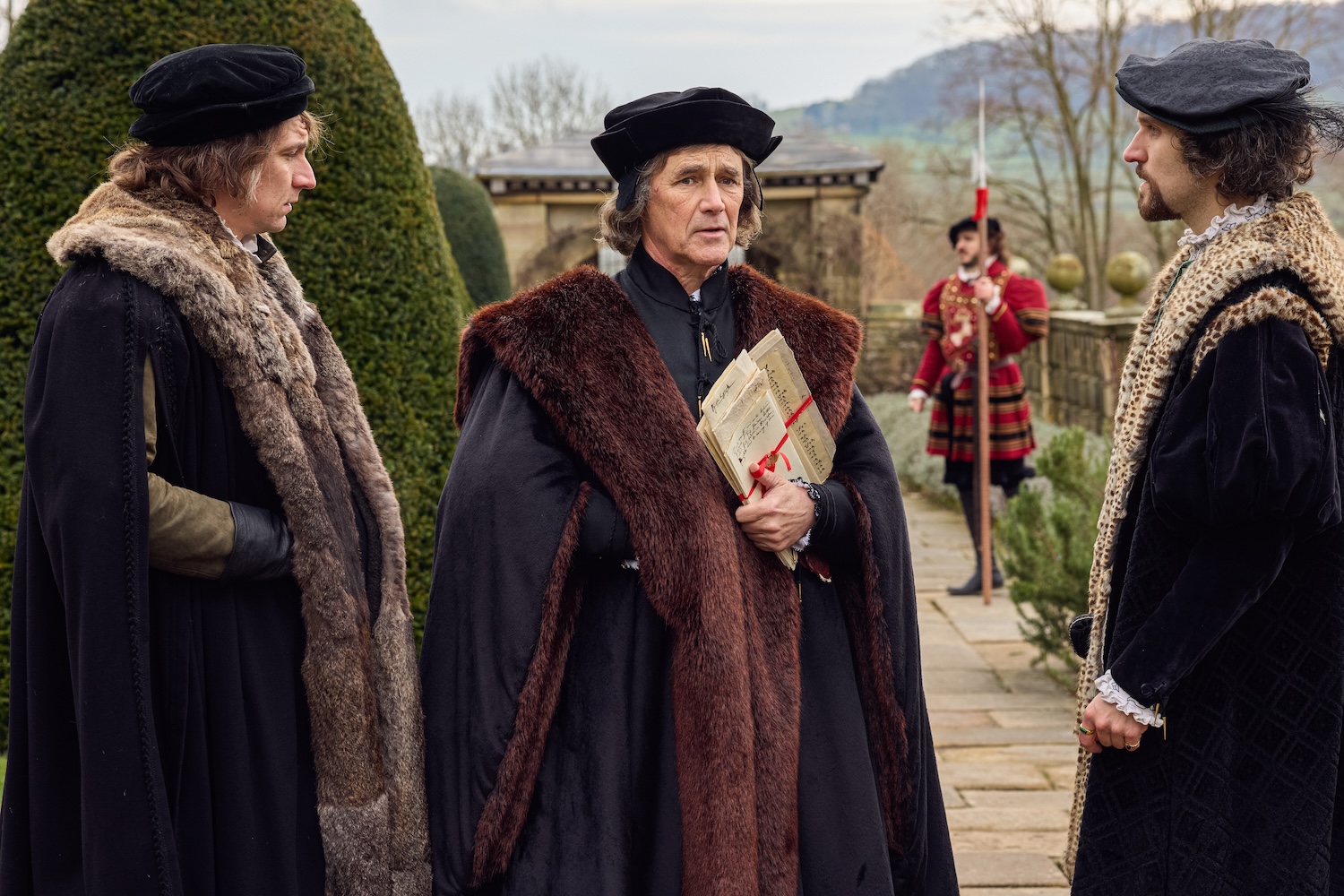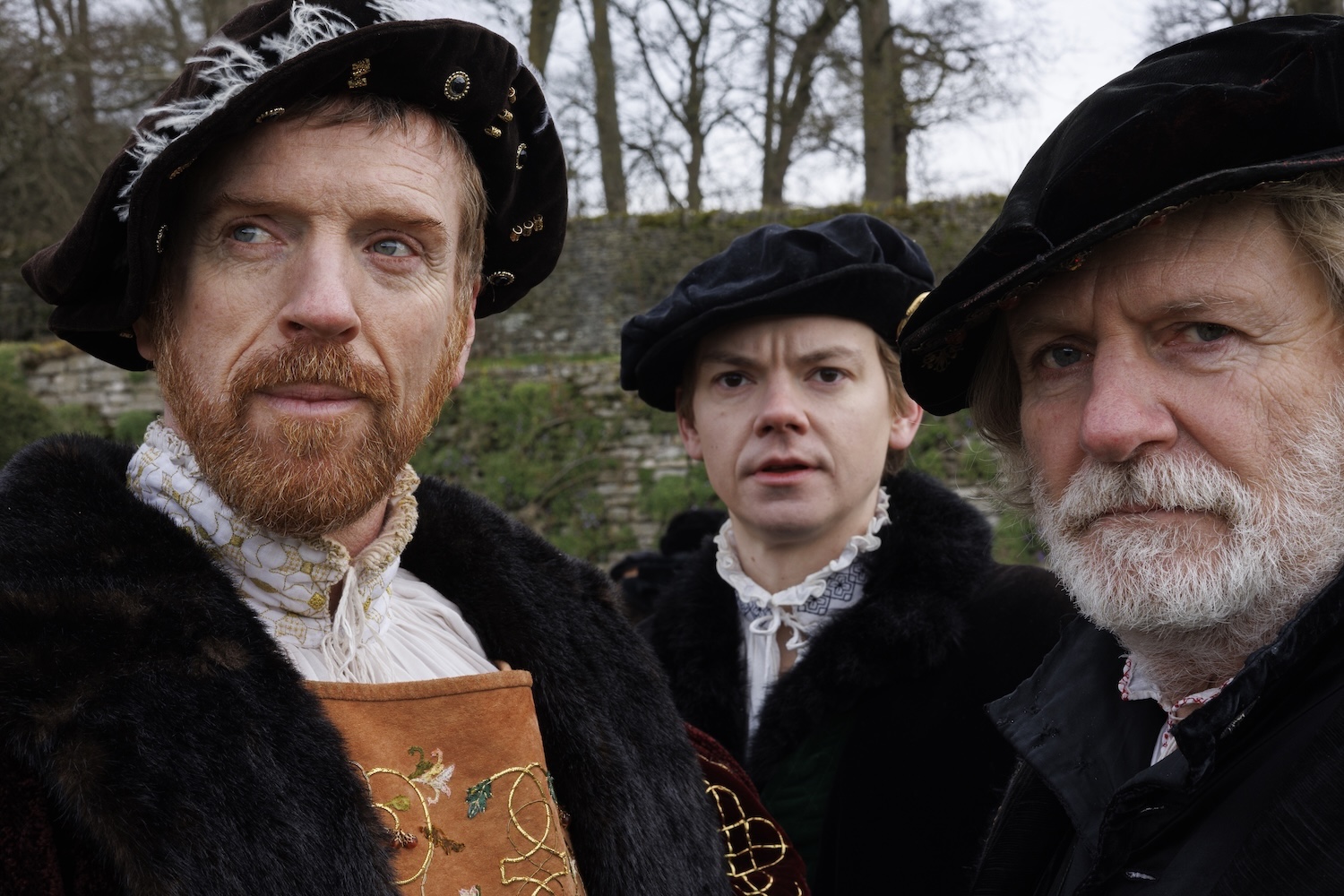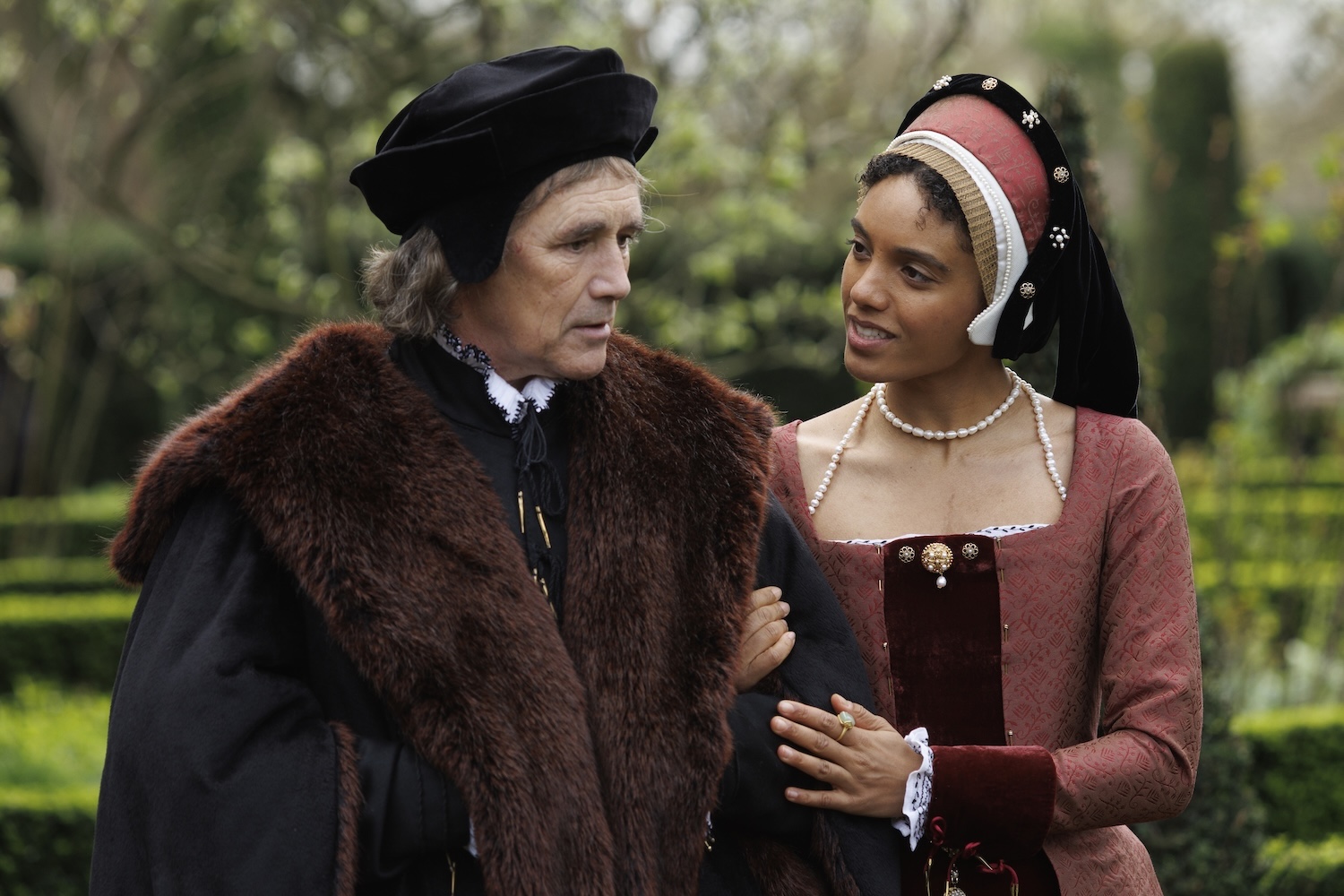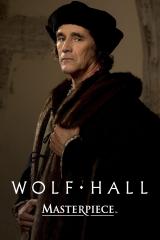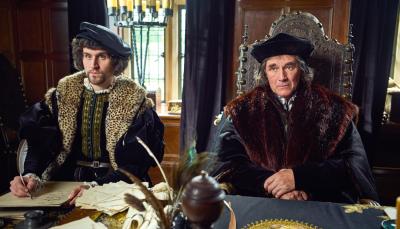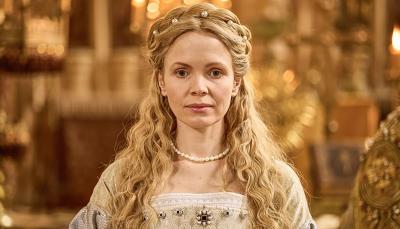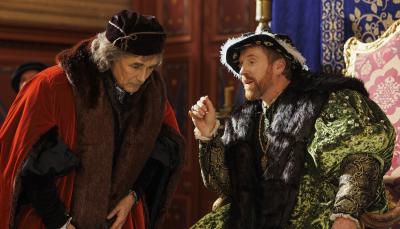A Rebellion Rises as 'Wolf Hall: The Mirror & the Light' Reaches Its Halfway Point
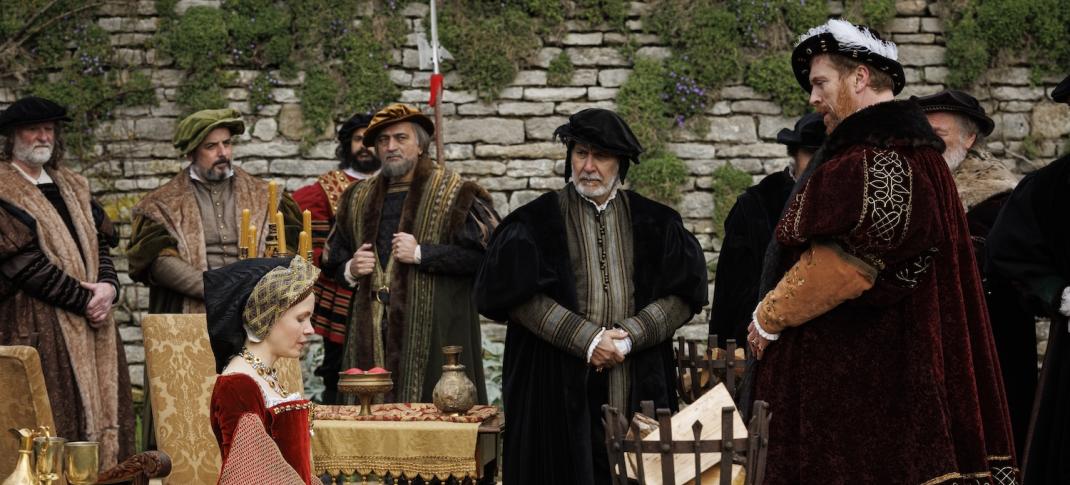
Kate Phillips and Damian Lewis in "Wolf Hall: The Mirror and the Light"
(Photo: Masterpiece)
As Wolf Hall: The Mirror & the Light reaches its halfway point, being Thomas Cromwell isn't as easy as it used to be. Sure, the former blacksmith's son has never been as powerful as he is at this precise moment, with the king's ear and a reputation of such size and scope that he's become a cautionary tale to children throughout the country. But he's also increasingly and evidently miserable, and even the prominent symbols of his power and influence tend to have hidden sharp edges.
Last week, we saw Cromwell have a breakdown over the thought that his beloved mentor, Thomas Wolsey, might have gone to his grave, believing him to have betrayed their friendship. (Also, at the realization that Wolsey's daughter will go to hers hating him for it, no matter the truth of his guilt or innocence.) This week, Cromwell's public persona begins to take a beating — a shift from which he will never fully recover.
A rebellion has begun in Lincolnshire. Historically sparked by the closure of Louth Park Abbey, it has many antecedents in the world of the show, most of which are connected to Cromwell. Many northerners believe Henry to be dead, and his chief minister is ruling in his place. They insist Cromwell is a devil who wants the king's daughter for himself, who plans to pull down the parish churches and melt down the crucifixes and holy objects to use as weapons against the poor. Of course, this is all so much misinformation, but as any modern viewer will recognize, a lie can get halfway around the world before the truth pulls on its boots.
The uprising ultimately sows the seeds for the full-on rebellion that will come to be known as the Pilgrimage of Grace. The "pilgrims," as the rebels preferred to be called, objected to the recent religious reforms, particularly the closure of the lesser monasteries and priories throughout the kingdom and the seizure of much of their lands and wealth. Zealous reformers viewed these sites as corrupt, idolatrous, and/or wasteful, but they were prized among the common people as sites of learning, community, and charity.
It is, oddly, Jane Seymour who represents this viewpoint within the world of the show, going to her knees to beg the king to allow the people the statues and prayers that bring them comfort — while insisting that surely they'll still pray for Henry when they're allowed to pray for the Pope again. Everyone (including Cromwell) immediately chastises her, insisting that she needs to be educated and essentially calling her dumb. But it's not an accident that Jane is the only person who displays anything like kindness or understanding towards the people whose entire faith and social structure has been upended.
An estimated 50,000 men joined the rebels, ultimately occupying York and forcing the king and his men to negotiate. But if we've learned anything throughout this franchise, the only person who should trust Cromwell is probably Cromwell. His promises of a general pardon, a northern parliament, and a York coronation for Jane are just stalling tactics meant to drag out any negotiation into the winter months when the rebels will run out of food, making them easy targets for Henry's army.
The rebellion is quashed, and (though the show doesn't depict it) more than 200 of its leaders are executed. For all that it's easy to like this Cromwell, it's often just as easy to forget that he's not a good man. At least he has the self-awareness to recognize that fact most of the time.
Part of the risk of being the most powerful man besides the king at Henry's court is that Cromwell is also first in line when it comes time to blame people for things. In "Defiance," he earns several tongue lashings for not bringing Henry's current nemesis, Reginald de la Pole, to heel quickly enough (or just outright killing him), for allowing York to fall, for not stopping the rebels, and for the increasingly ugly public perception of Henry's decisions regarding the English churches and monasteries. Rumors persist that he means to marry Princess Mary, that he's personally benefiting from the closing of religious houses, and that he's manipulating the king with everything from bad advice to spells.
Cromwell deserves some of this criticism; what's worse, he knows it, as his repeated nightmares featuring Dorothea's seething hatred and Anne Boleyn's headless body illustrate. But despite his reputation as everything from Henry's fixer to a bogeyman who haunts children's nightmares, his power is still evident. Just look at poor Lady Bess, who's more than willing to marry him anyway and seems genuinely disappointed when it's revealed Cromwell was negotiating for her hand on behalf of his son, Gregory.
In all honesty, the elder Cromwell would have been quite a catch. He's wealthy, intelligent, and demonstrably the second most powerful man in the country. The king himself joked that Cromwell's heirs might follow him on the throne if he decreed it. For a woman with few routes to power, that's a risk worth taking. Instead, everyone's left embarrassed about Gregory's second-hand status. Cromwell's son tries to save face by insisting his father stay away from his wife, who only accepts him by default. Awkward.
Despite the rebellions, politics, and various gossipy bits of court intrigue throughout the hour, the most critical developments in this episode have to do with children. Gregory is successfully married off, even if he seems resentful over his father's choice of bride. Jane is finally pregnant, which must surely come as a relief after being publicly repudiated for her childlessness by her husband, who has a bad habit of discarding wives he's grown tired of.
(Henry, after all, hasn't bothered to crown her yet, leaving the door open to the idea that her presence is potentially something less than permanent.)
More immediately, there's the arrival of a young woman named Jenneke from Antwerp, who claims to be Cromwell's daughter. This character, it should be noted, is entirely fictional, created by author Hilary Mantel to represent the idea of an illegitimate child that Cromwell was rumored to have, but of whose existence there is no historical evidence.
Wolf Hall isn't the sort of show that frequently ends with soap opera-style cliffhangers, but perhaps it makes sense at the end of an hour when several young women are positioned as Cromwell's children. As the specter of Cromwell's doom draws ever nearer— and we see the world he so easily commanded begin to shift against him, from Henry's increasing ire right on down to the increasingly cruel jibes of the court fool, Patch — the question of legacy takes center stage.
What will be left of the country if Cromwell and Henry break all the rules to change? What of the men who joined forces to bring that change about?
Wolf Hall: The Mirror & the Light airs on most local PBS stations and streams on the PBS app weekly on Sundays at 9 p.m. ET. All episodes are available for PBS Passport members and the PBS Masterpiece Prime Video Channel to binge before their on-air broadcast.

